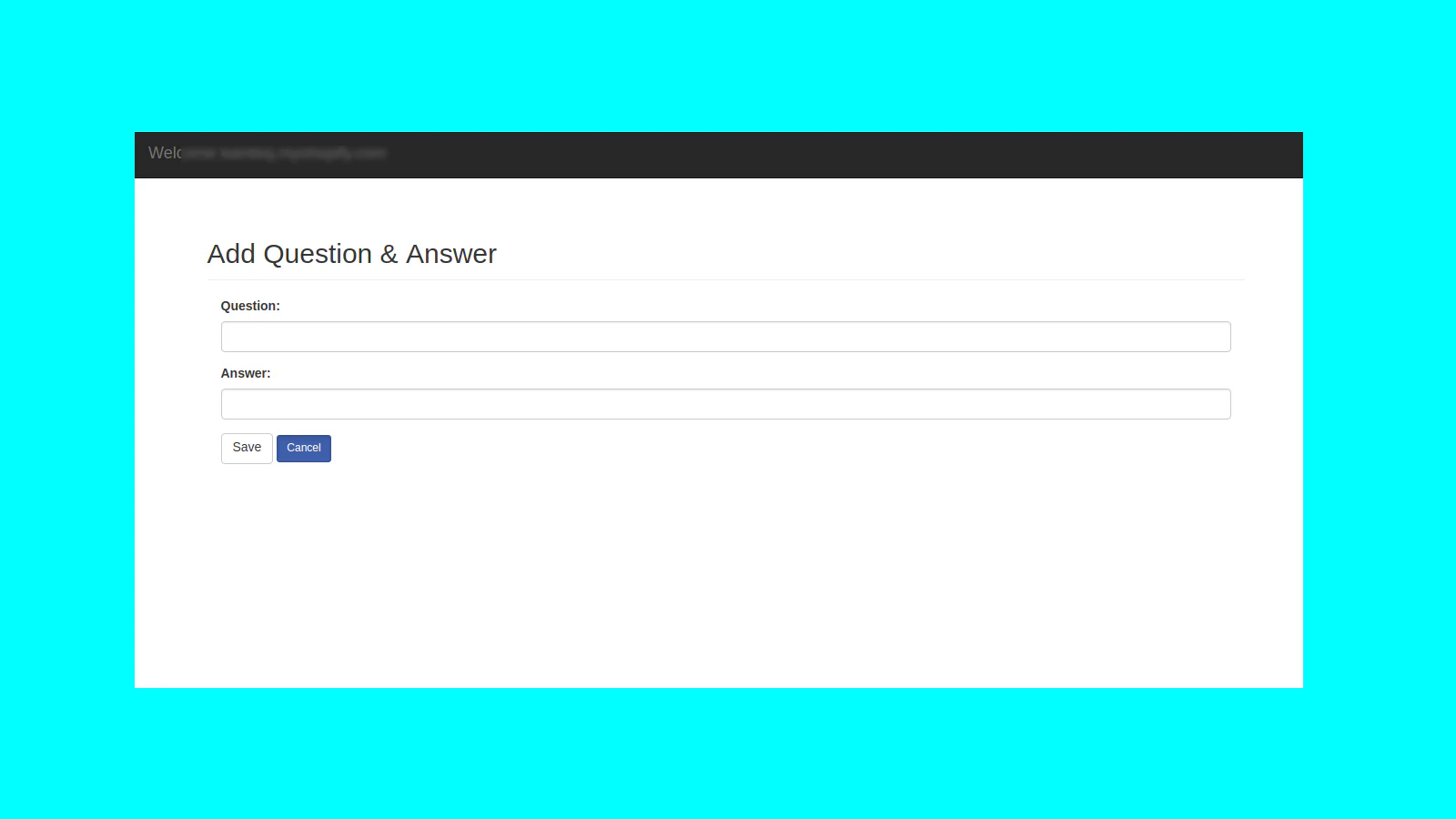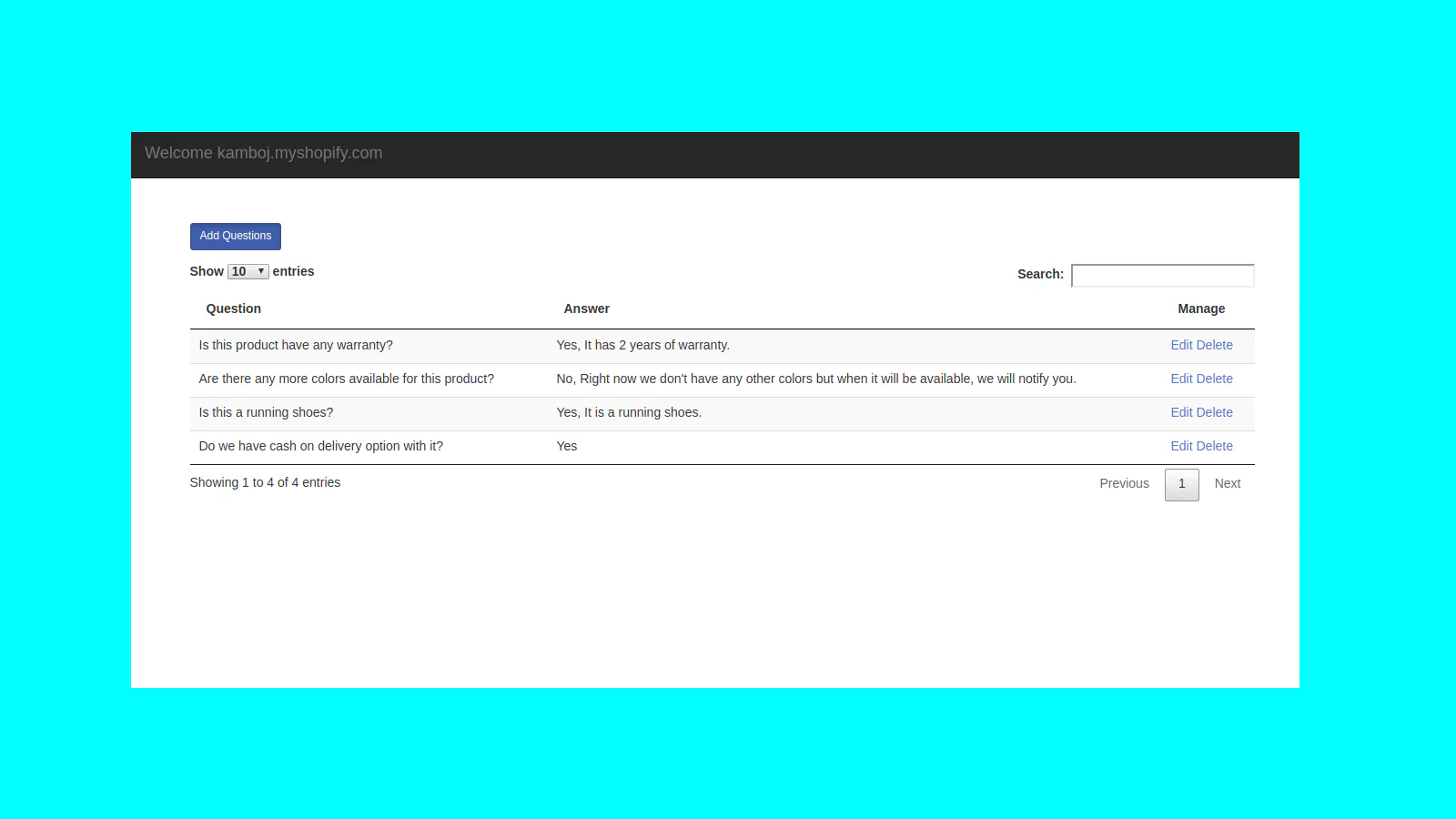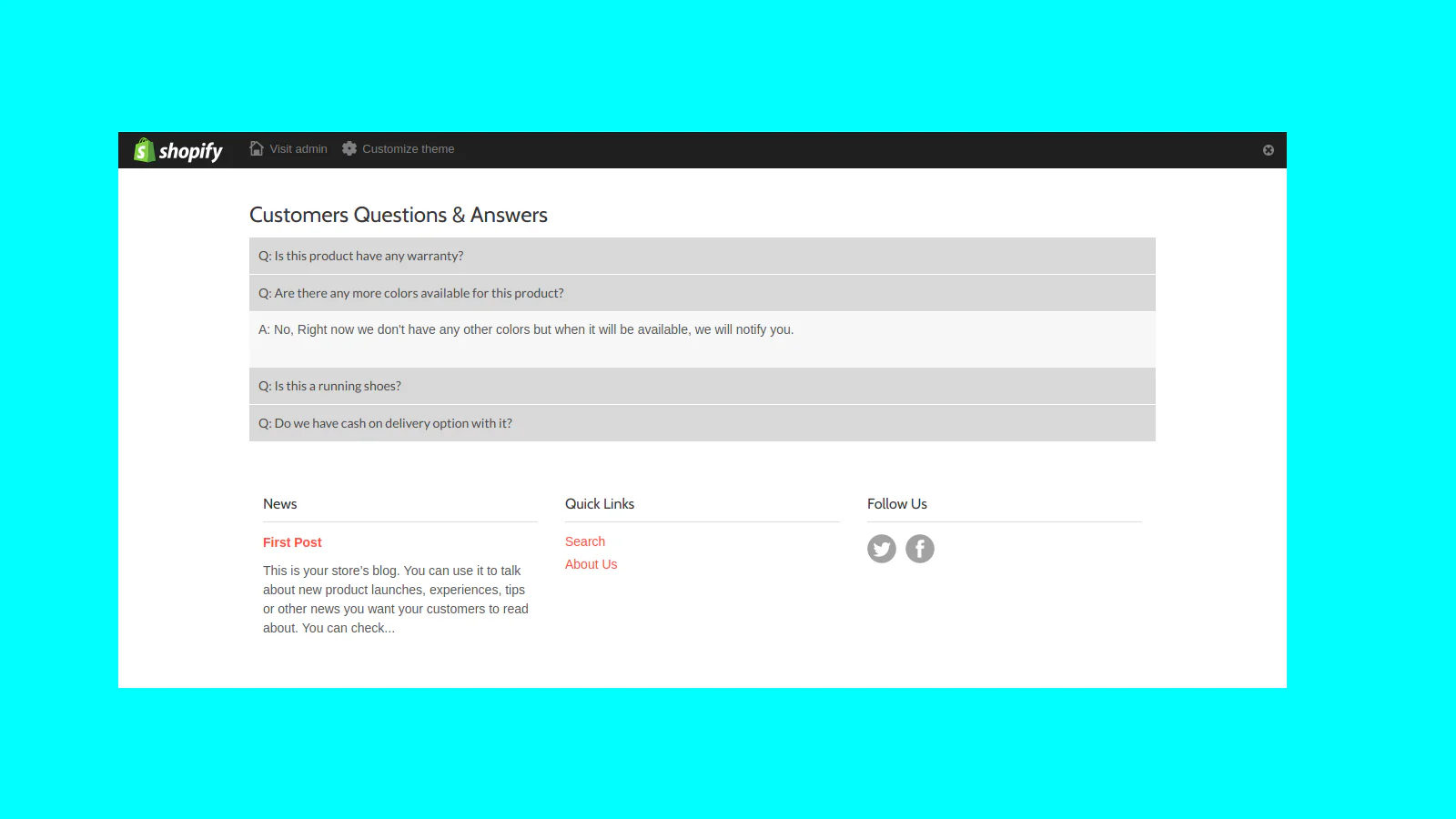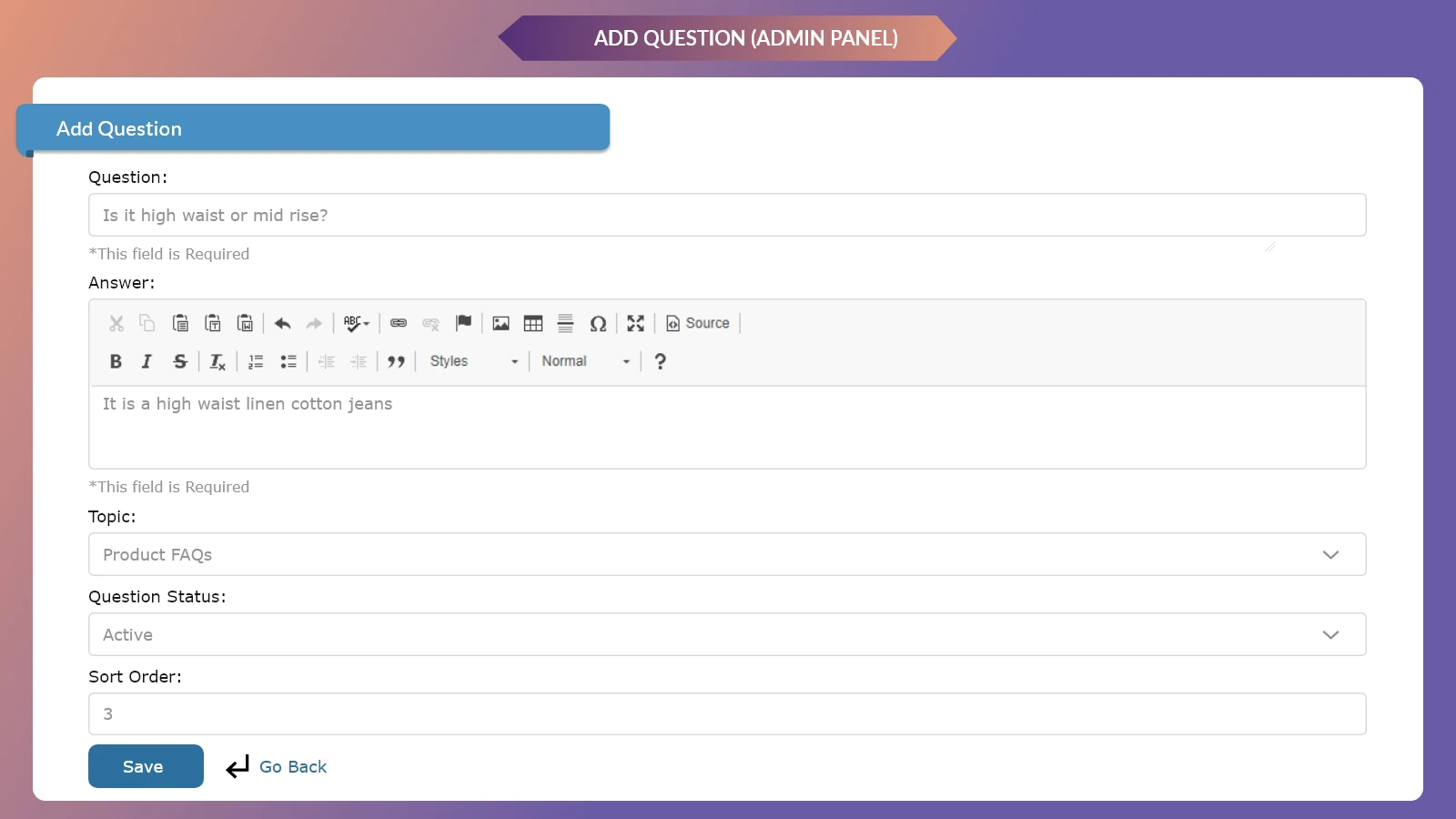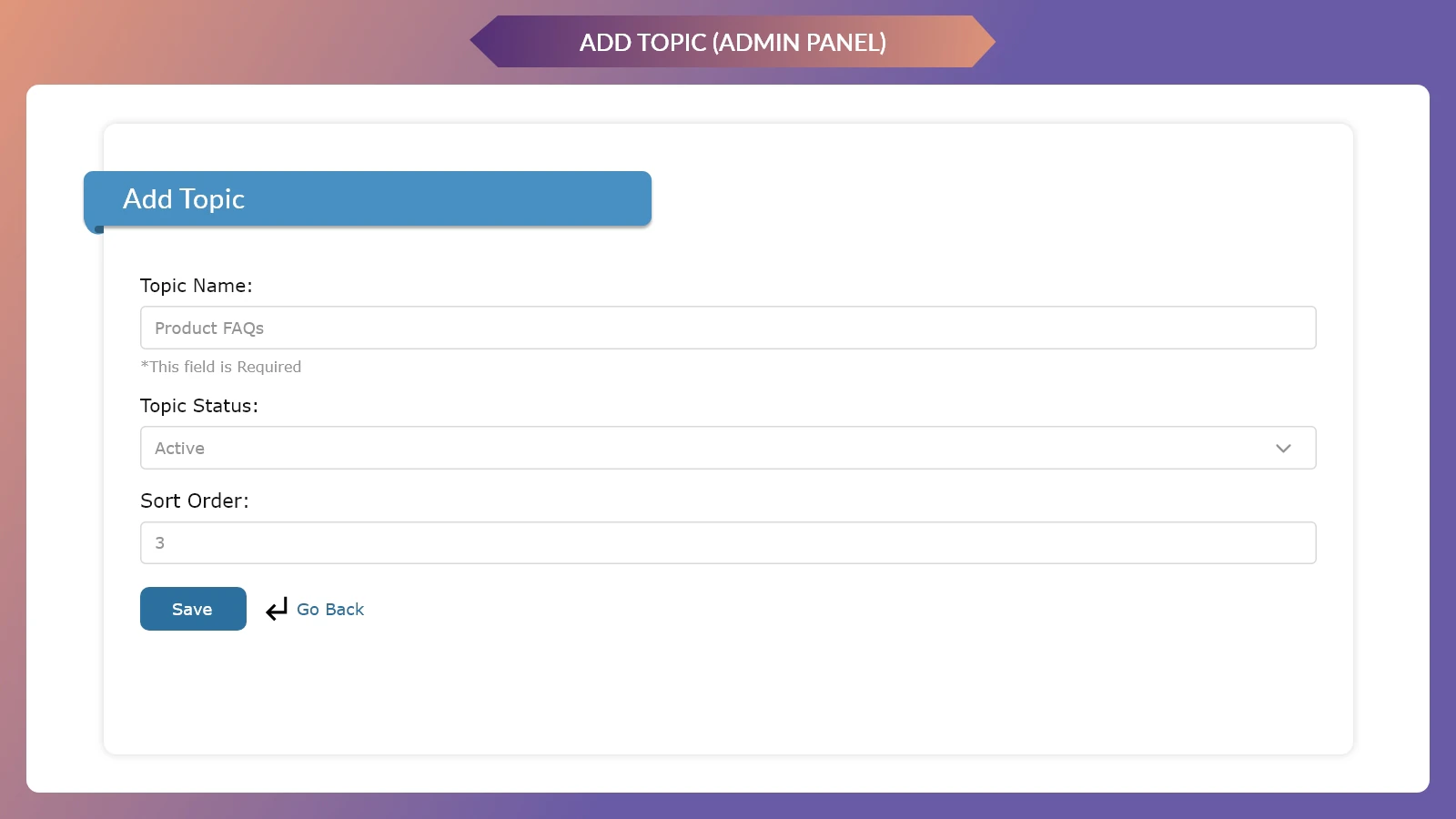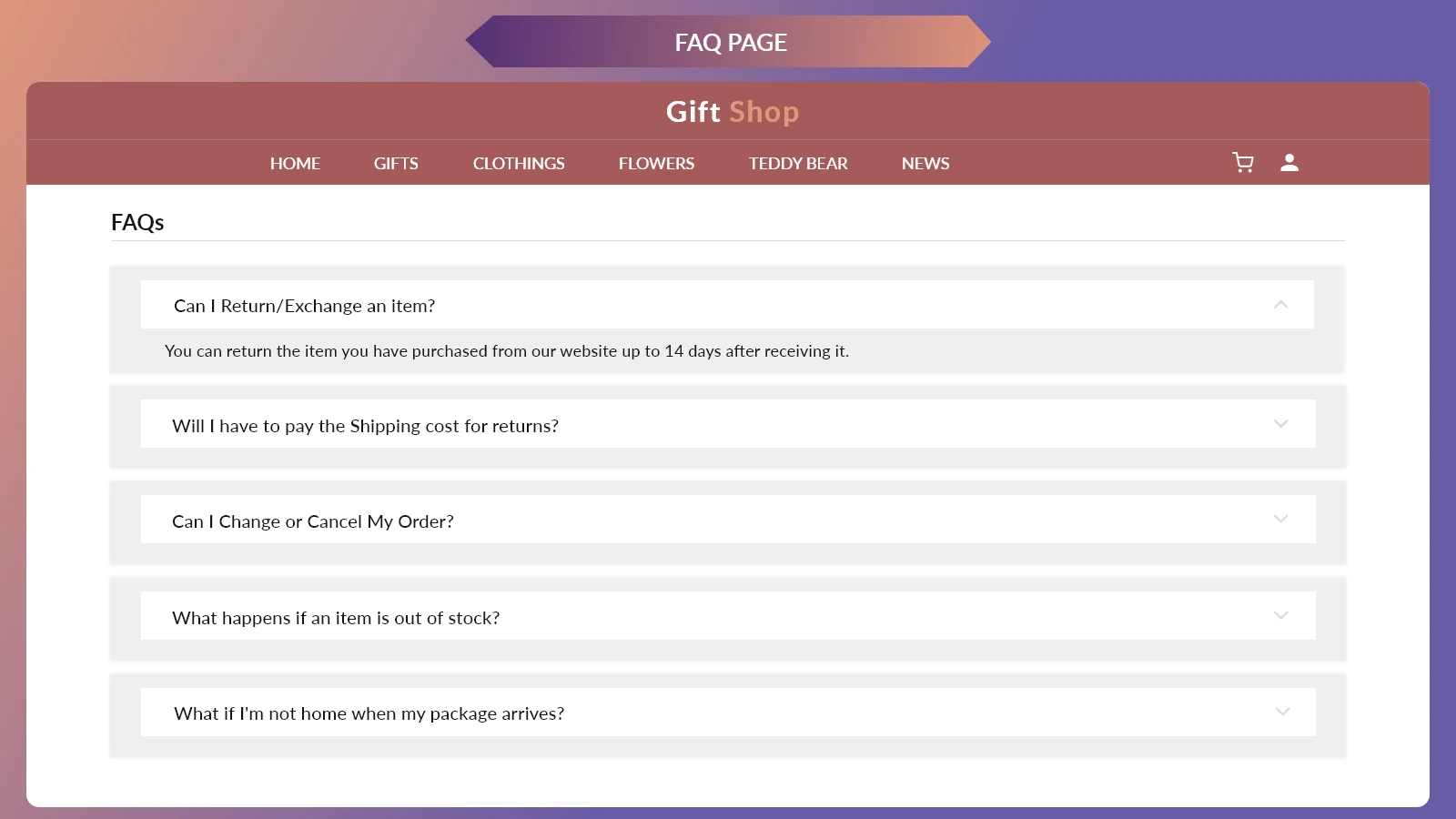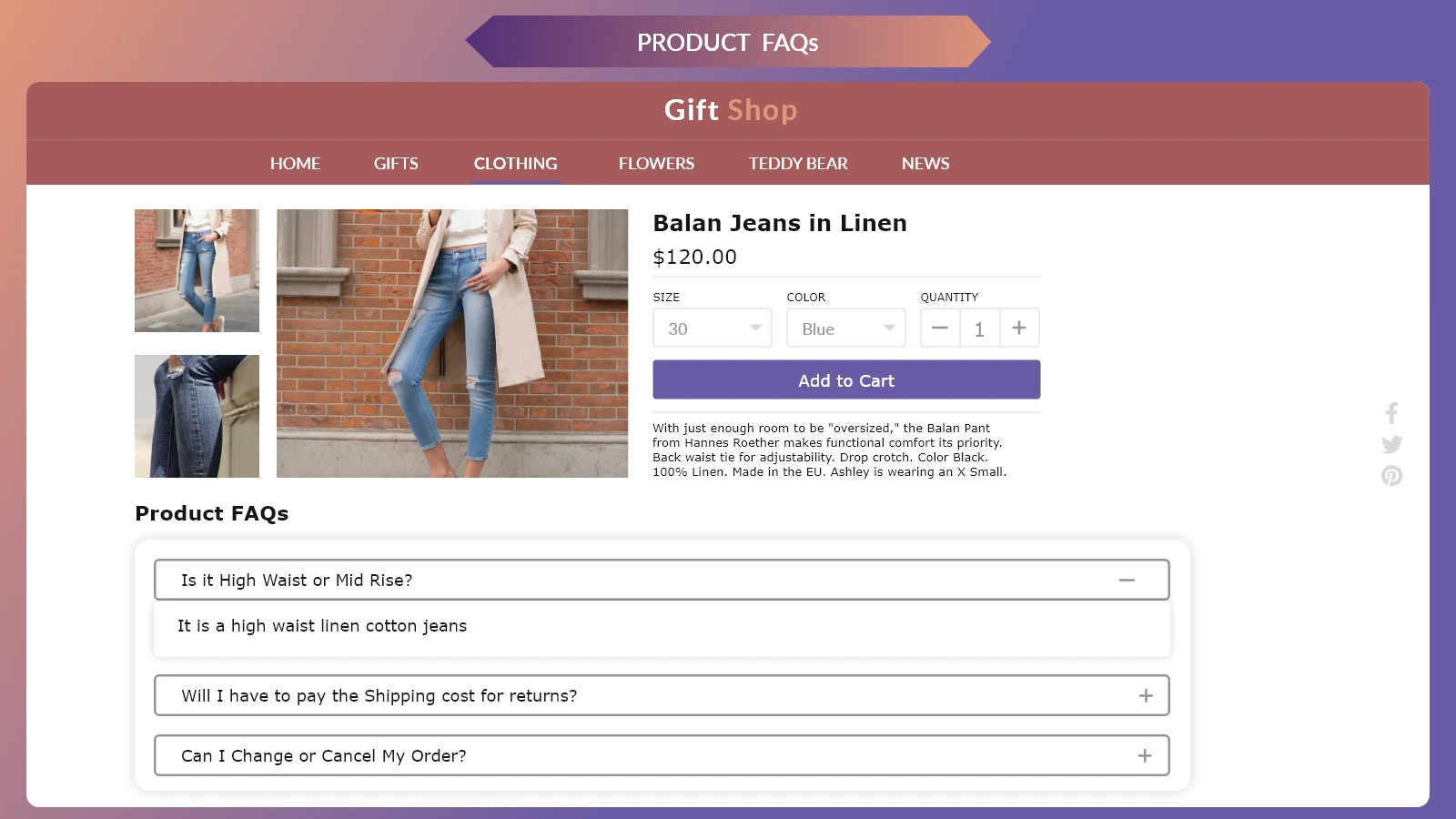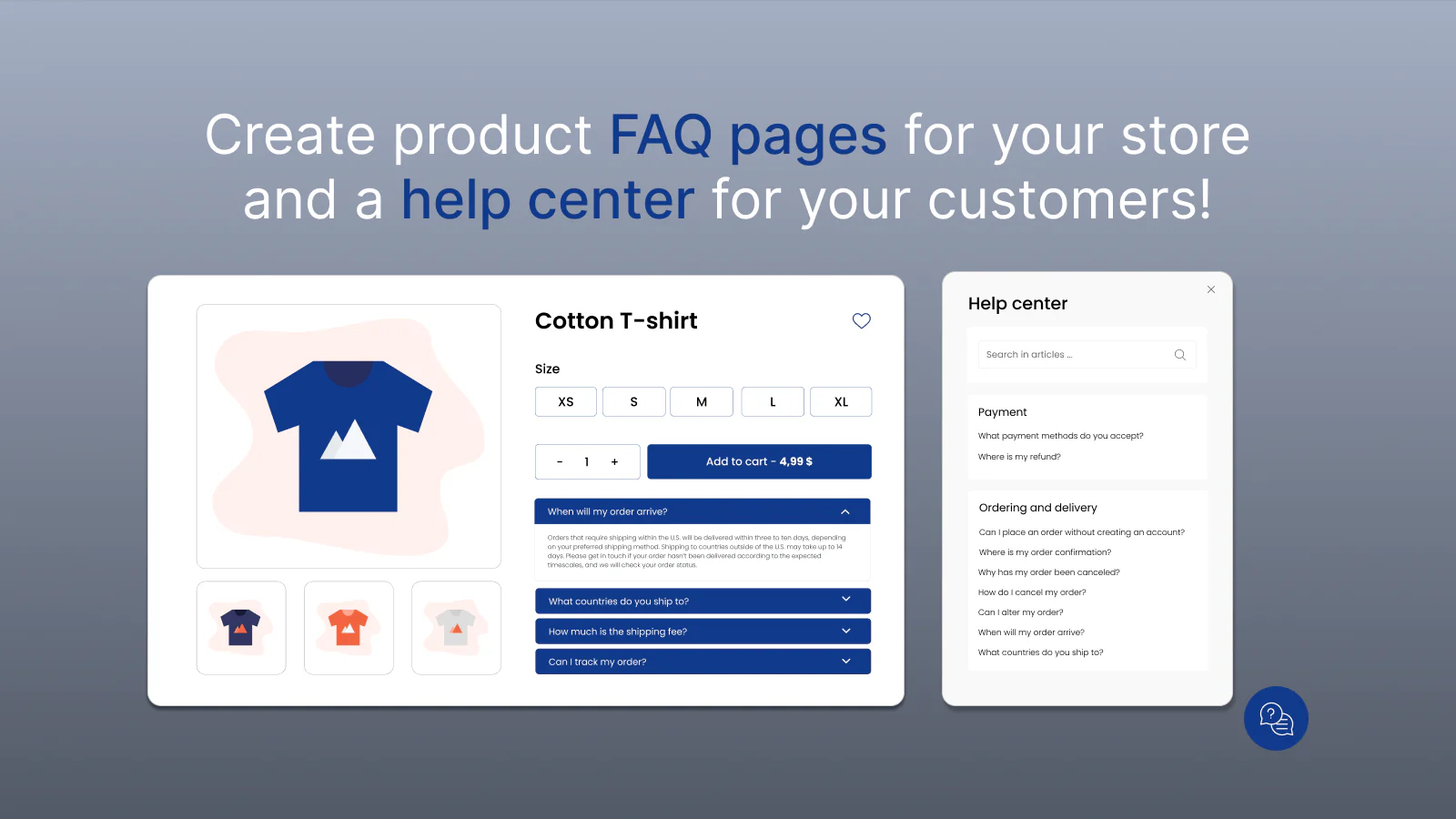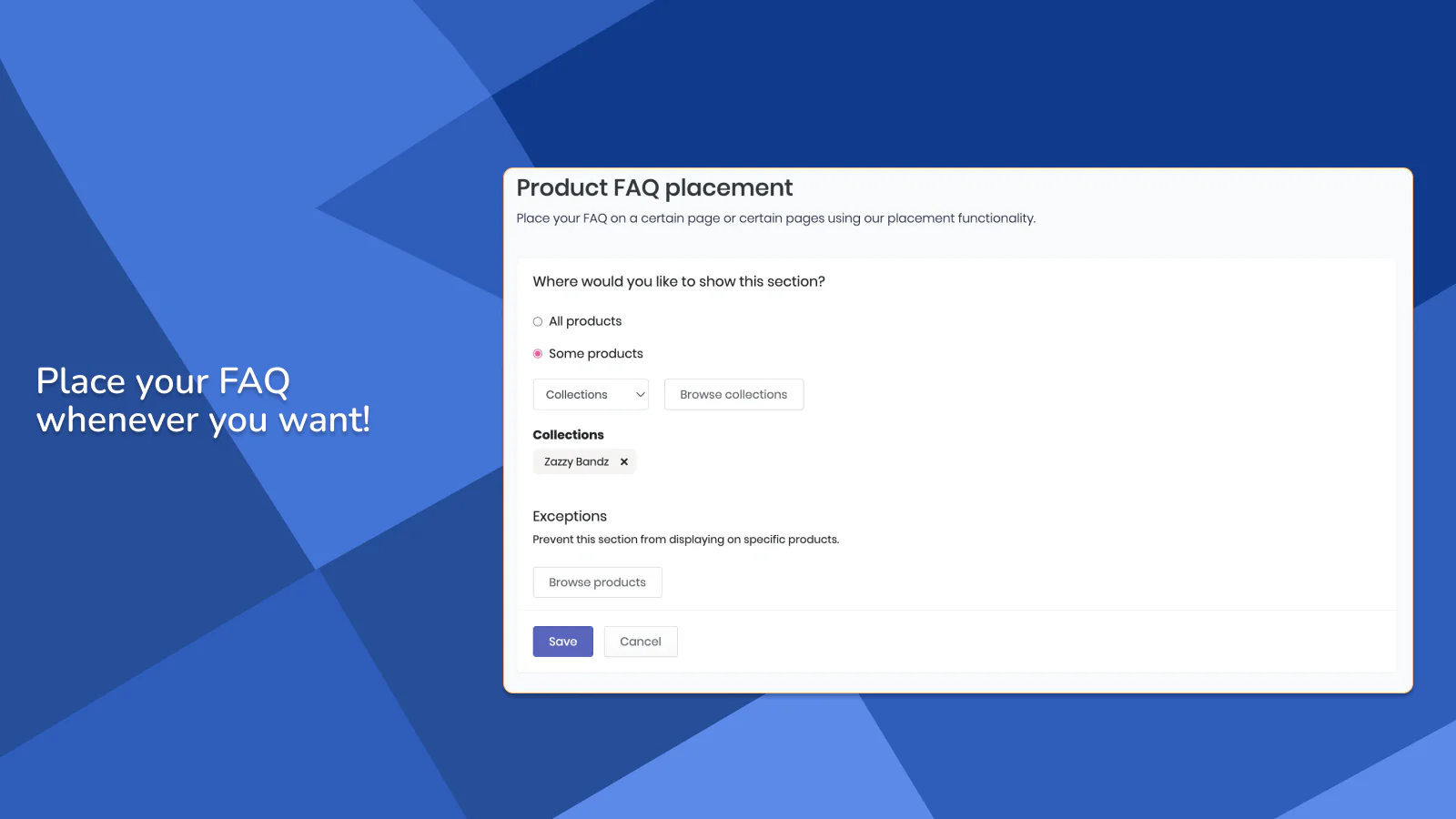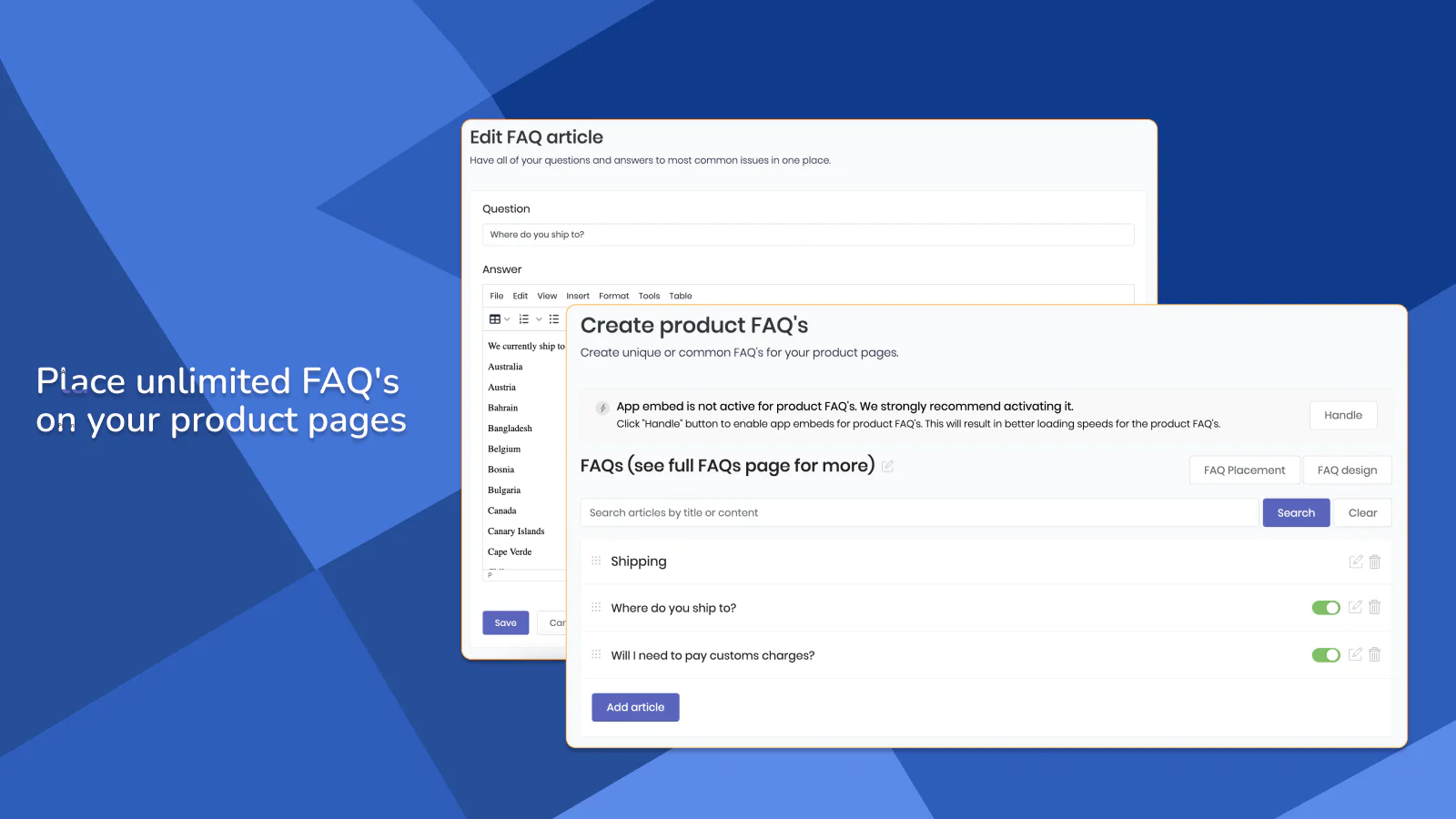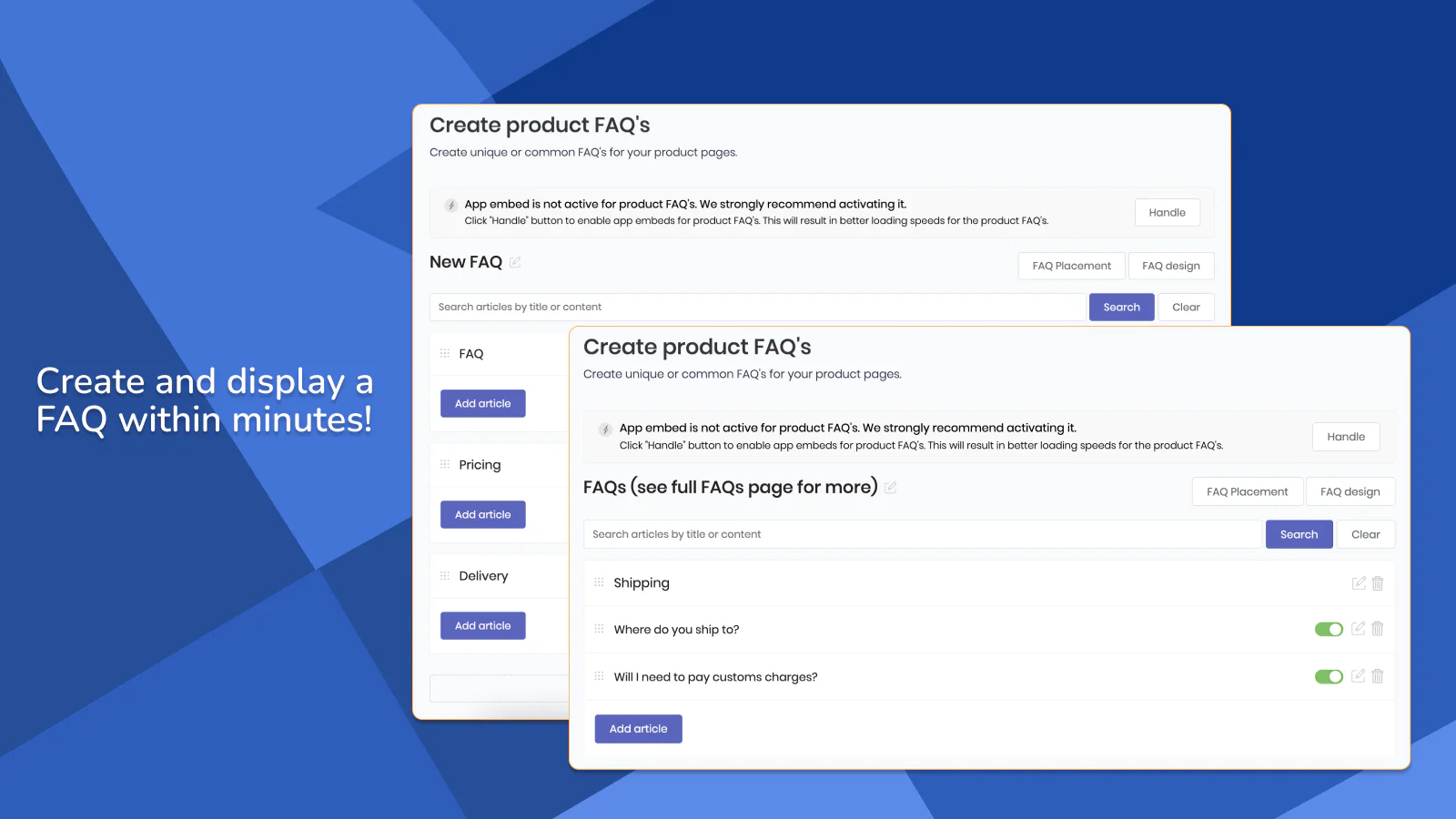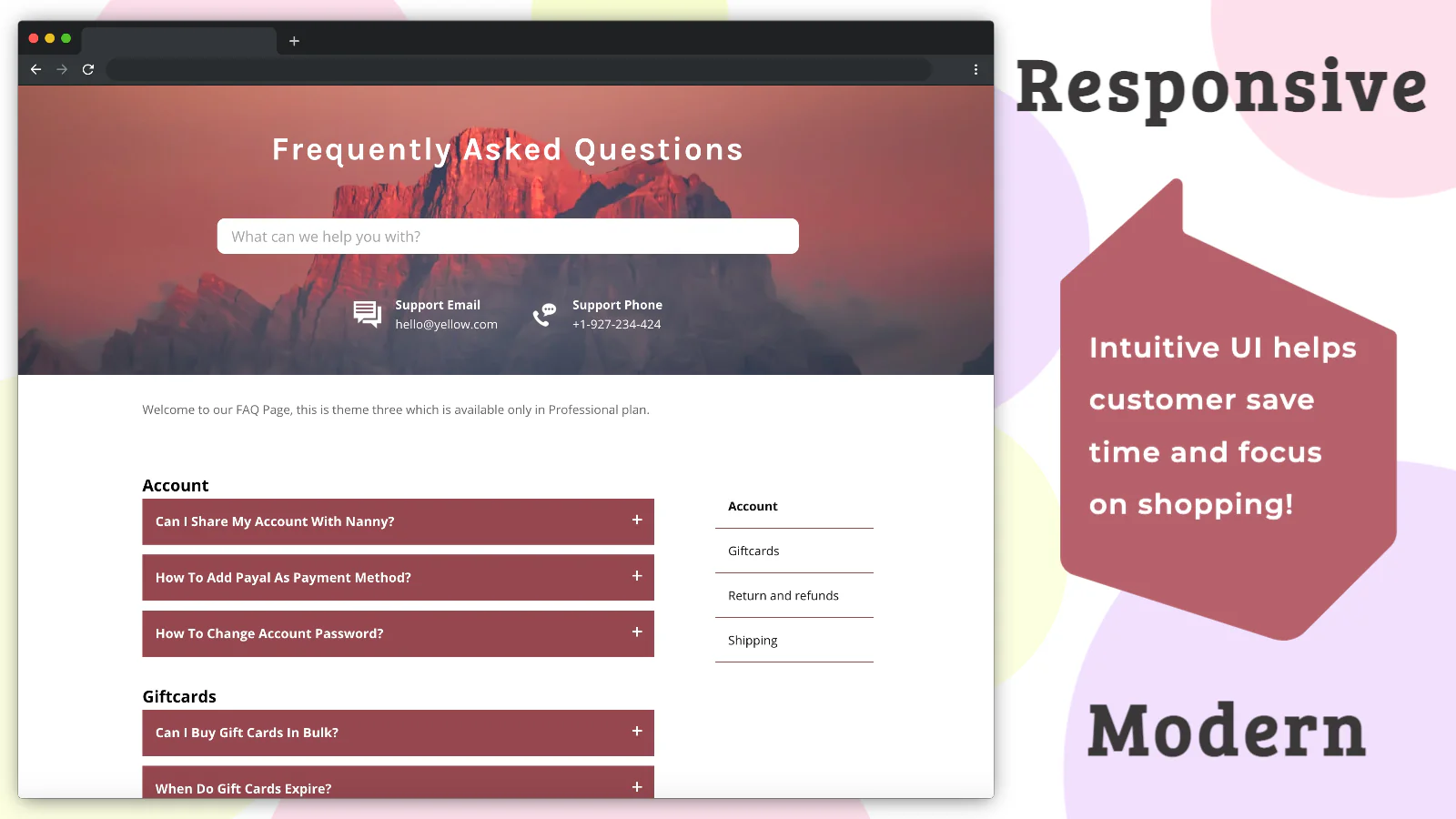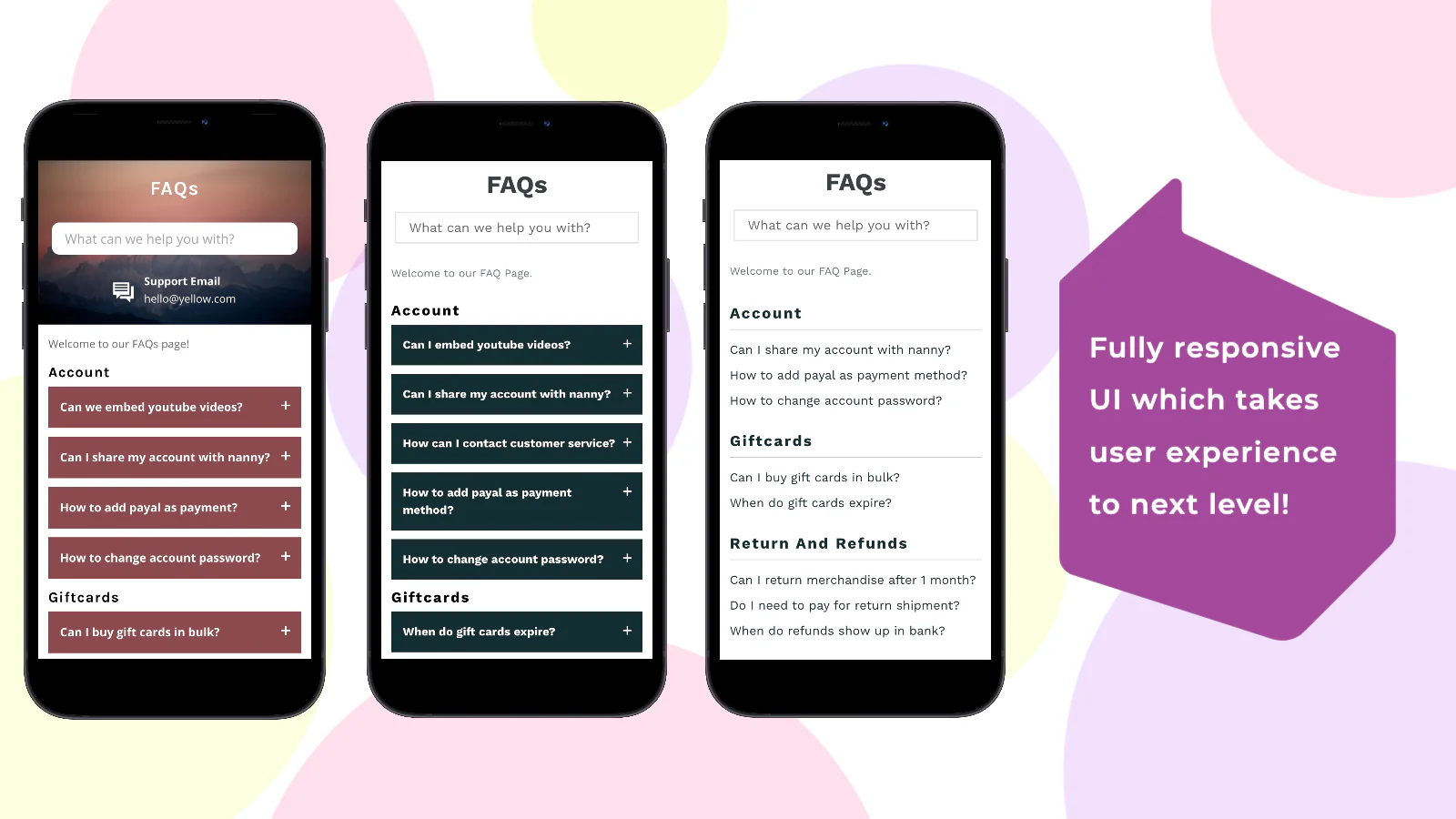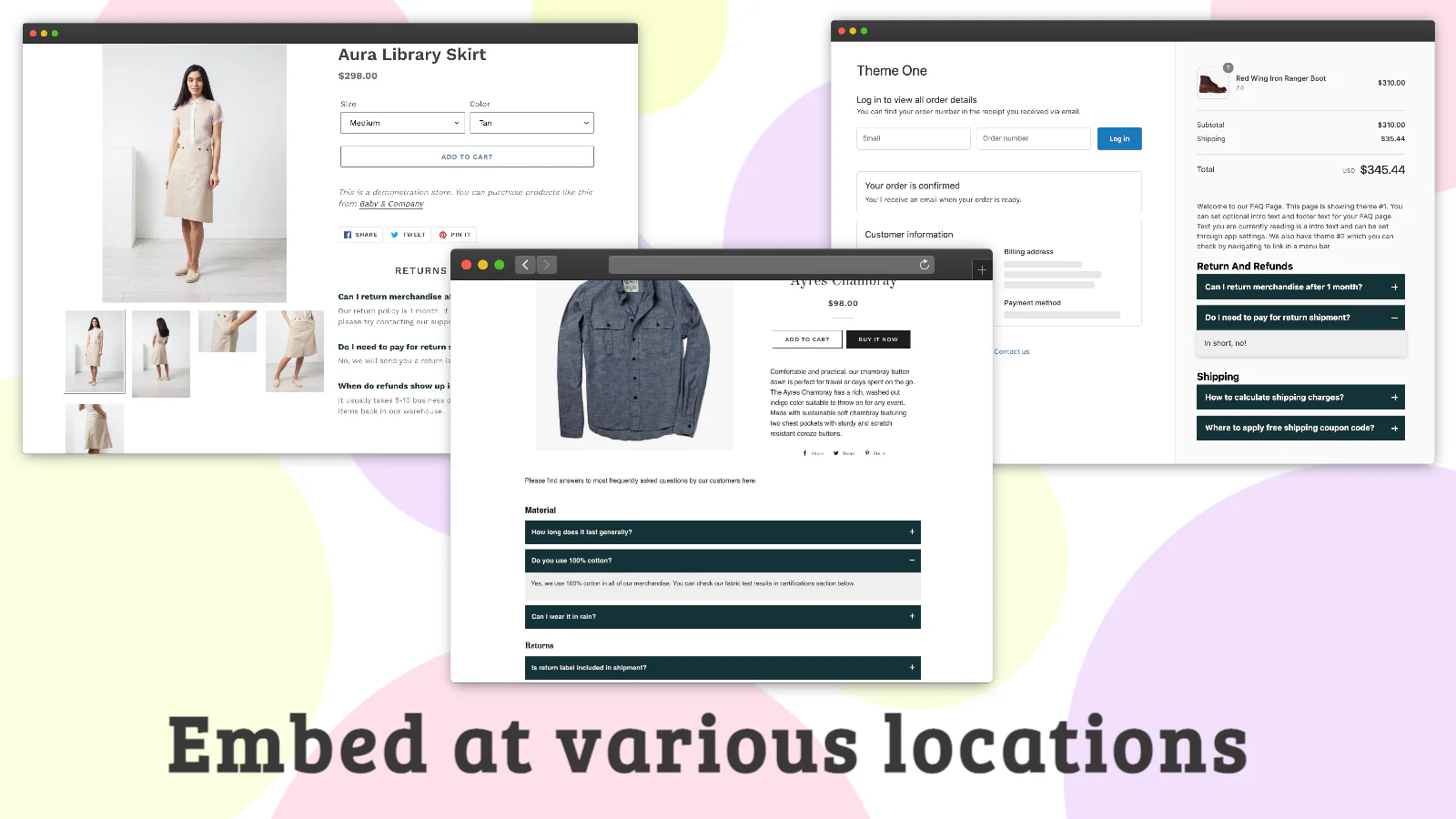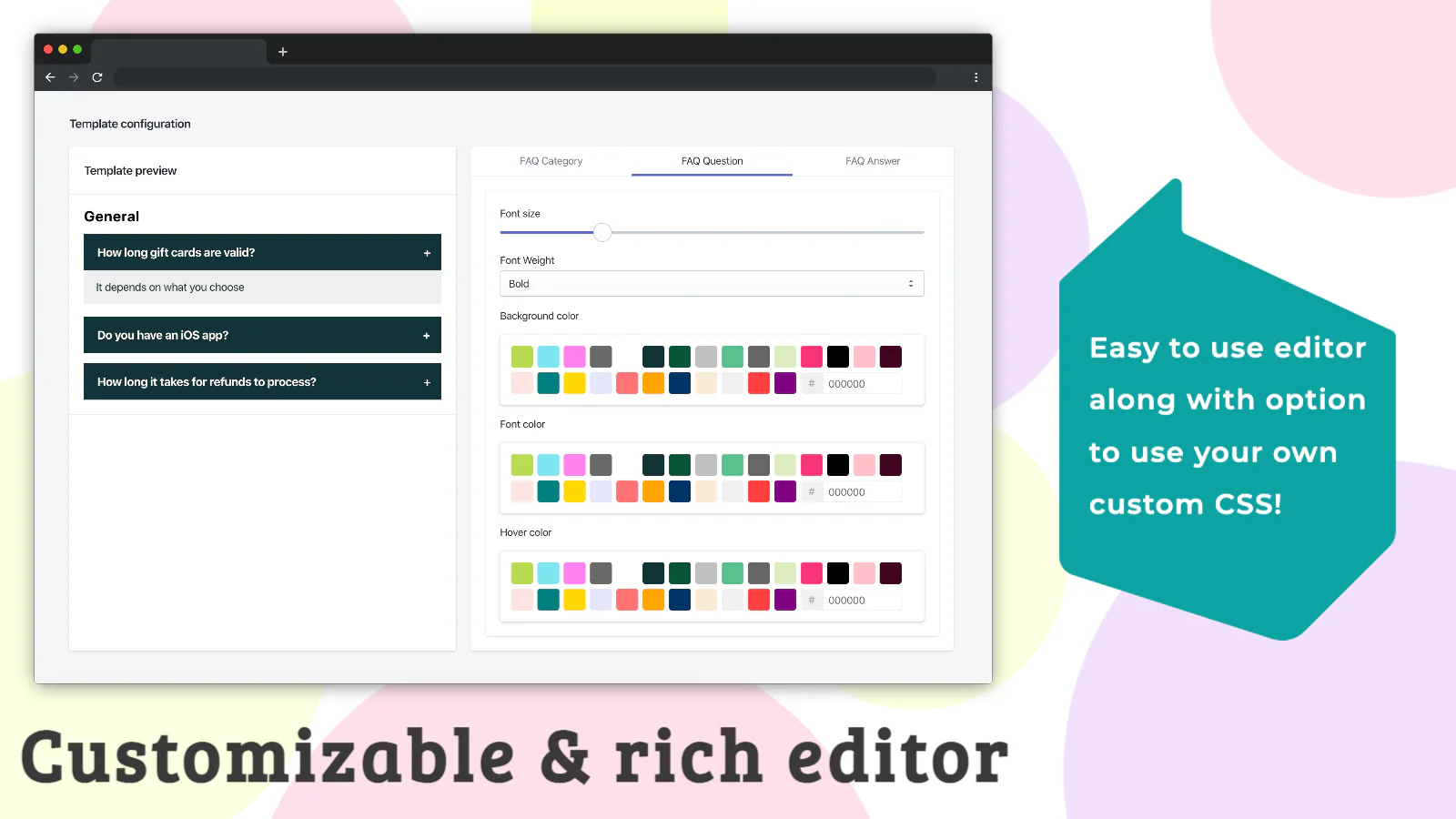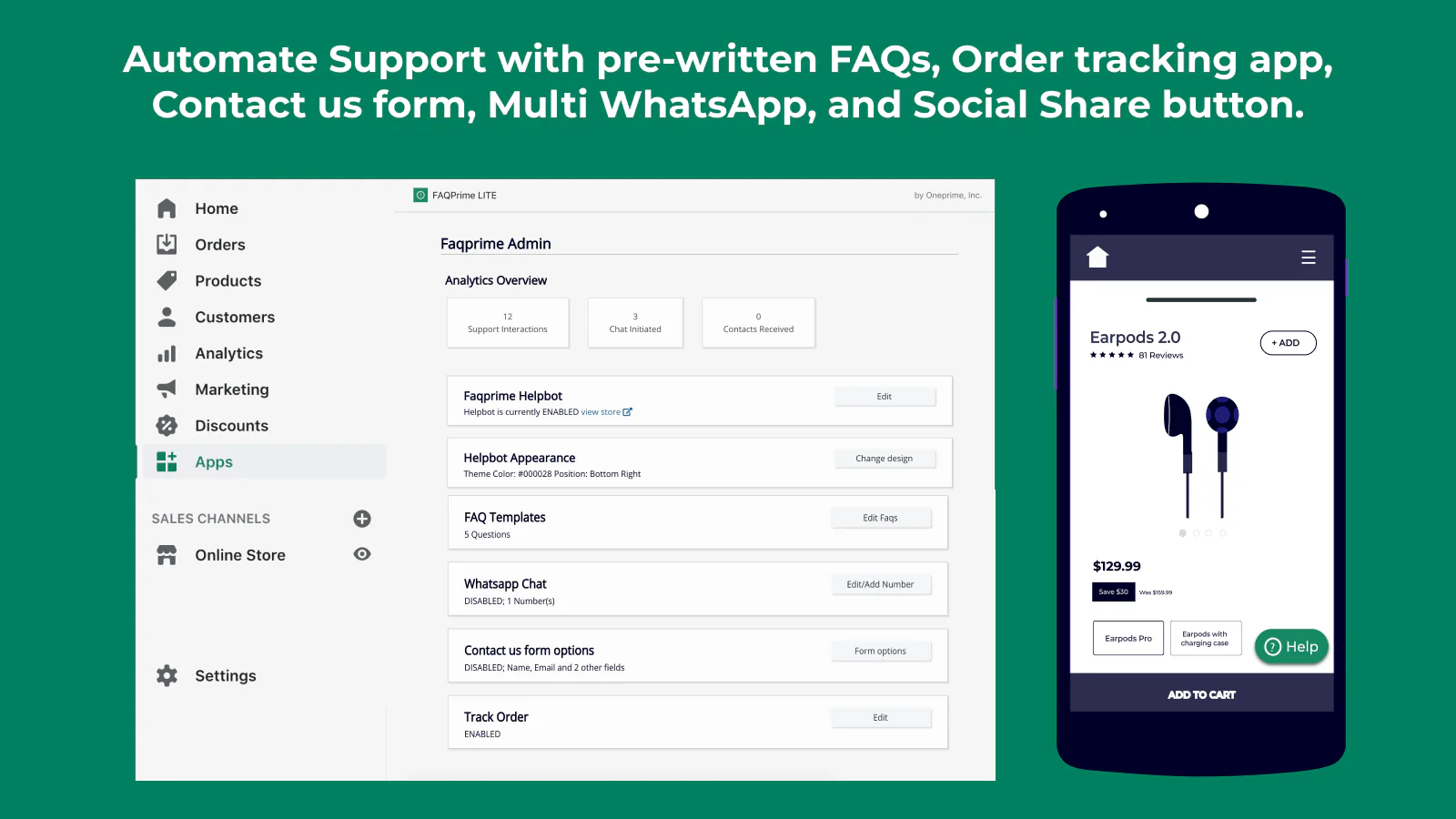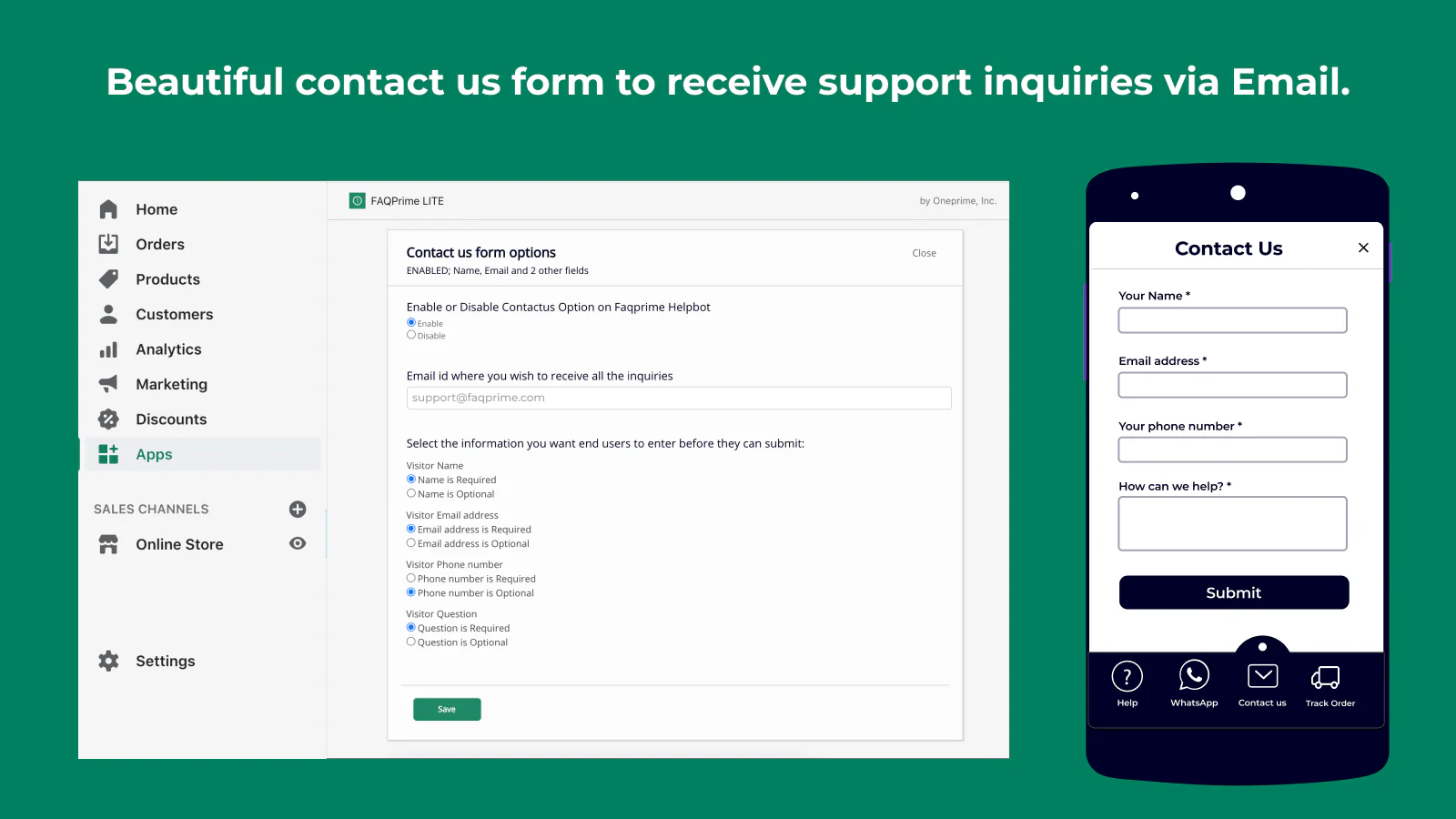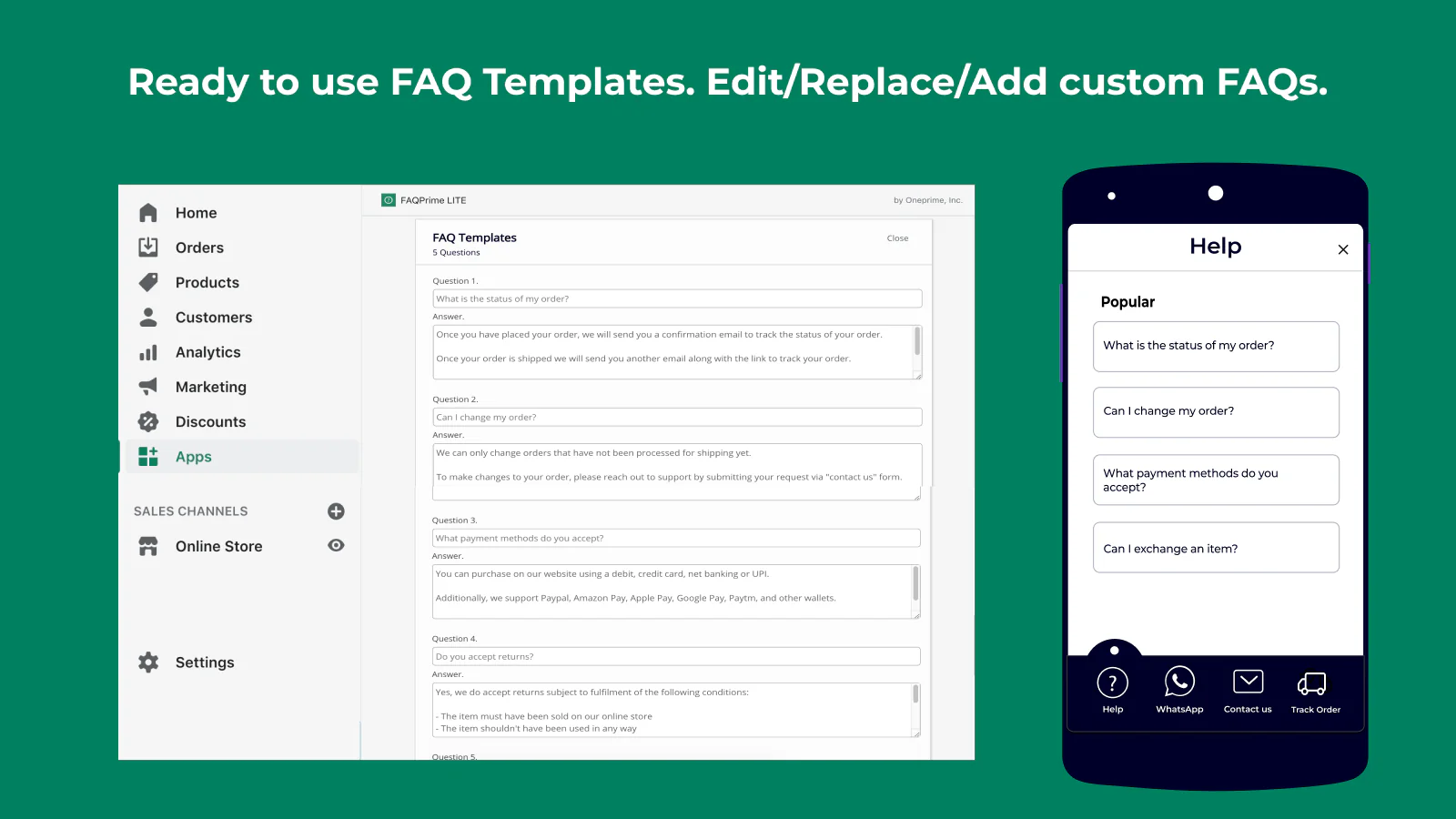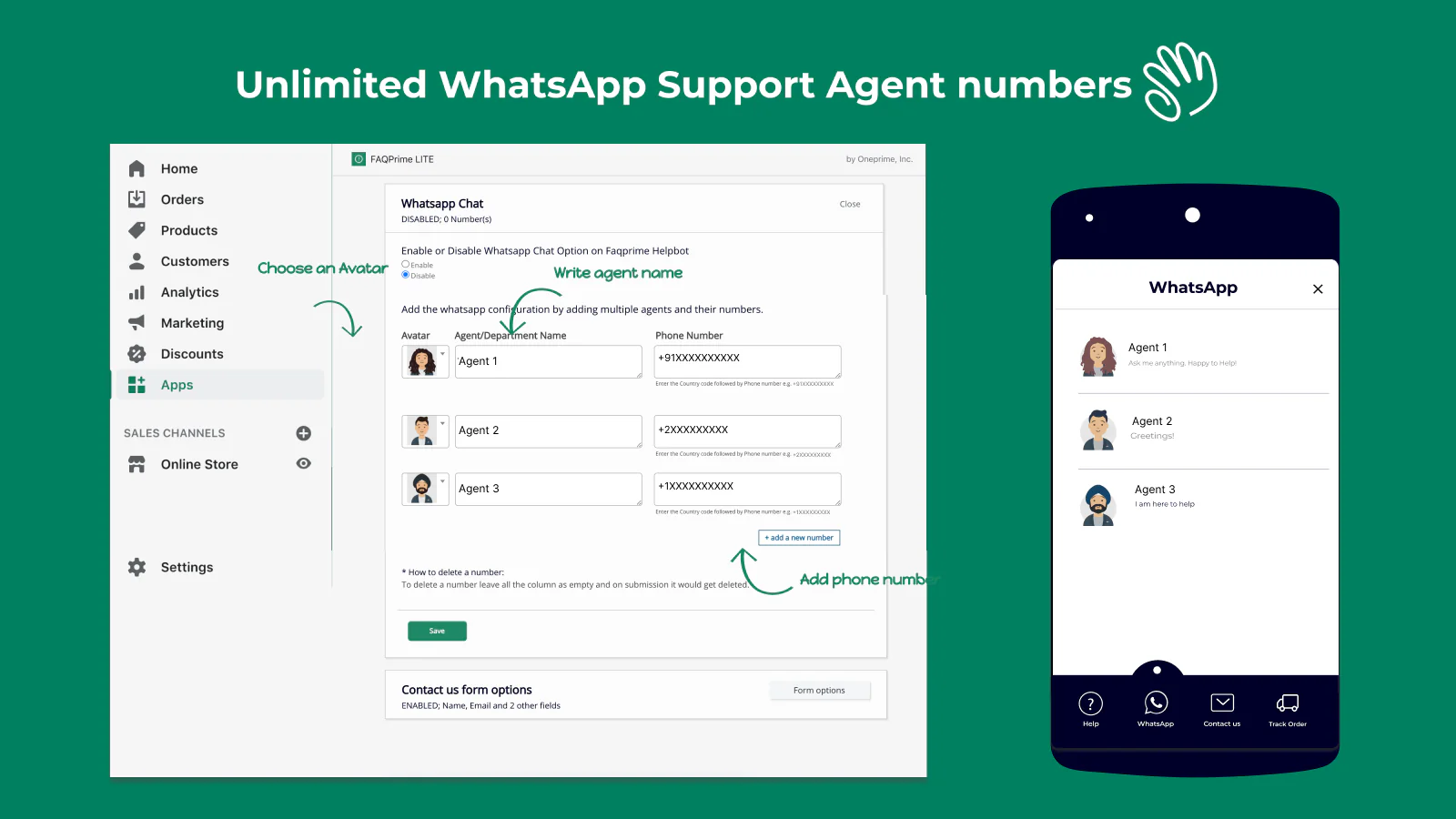Top 5 Best Shopify FAQ Apps [November, 2024]
This guide helps ecommerce store owners to compare and find the best FAQ apps for Shopify. FAQ apps are popular for ecommerce businesses that want to a way to notify their customers when products are back in stock. However, with the variety of Shopify apps for FAQ, it can be challenging to find the ideal app for store owners’ individual needs.
To help ecommerce store owners make the right choice, the attributes of available Shopify apps have been assessed considering: features, price, free trial availability, app store rating and free app options.
This guide compares five companies for merchants to review and find the optimal FAQ app for their needs. To help them make an informed decision, a quick comparison table of the best FAQ Shopify apps is shared below, followed by in-depth reviews and frequently asked questions.
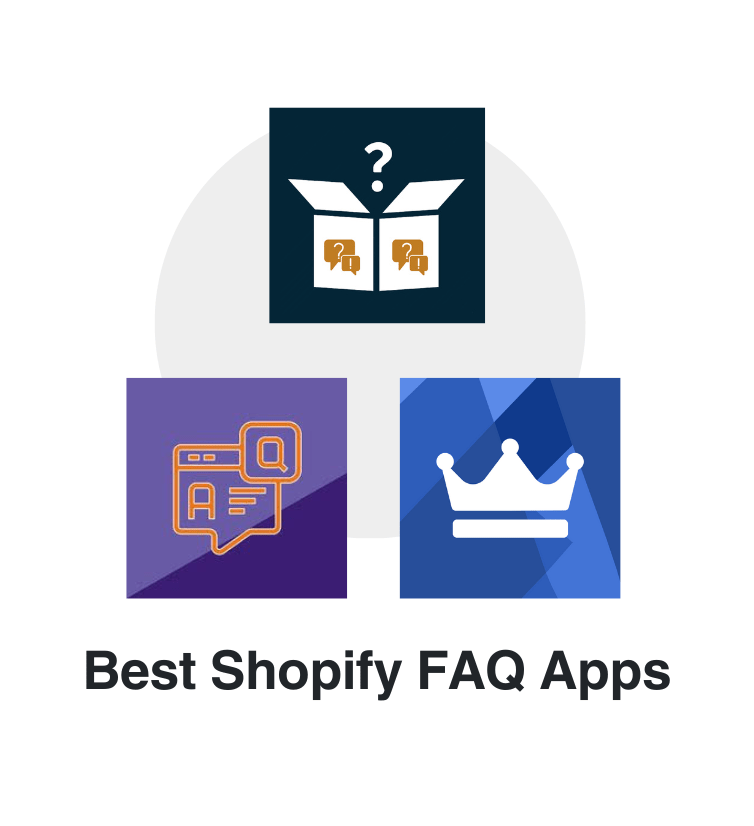

Free Guide: How To Find A Profitable Product To Sell Online
Excited about starting a business, but not sure where to start? This free, comprehensive guide will teach you how to find great, newly trending products with high sales potential.
Quick comparison of the best Shopify FAQ apps
| # | App Name | Developer Name | Pricing | Rating | Free Trial | Image | Action |
|---|---|---|---|---|---|---|---|
| 1 | Product Q&A by Buddy Apps | Buddy Apps | $29.99 one -time charge | 5.0/5 ⭐️ | no | 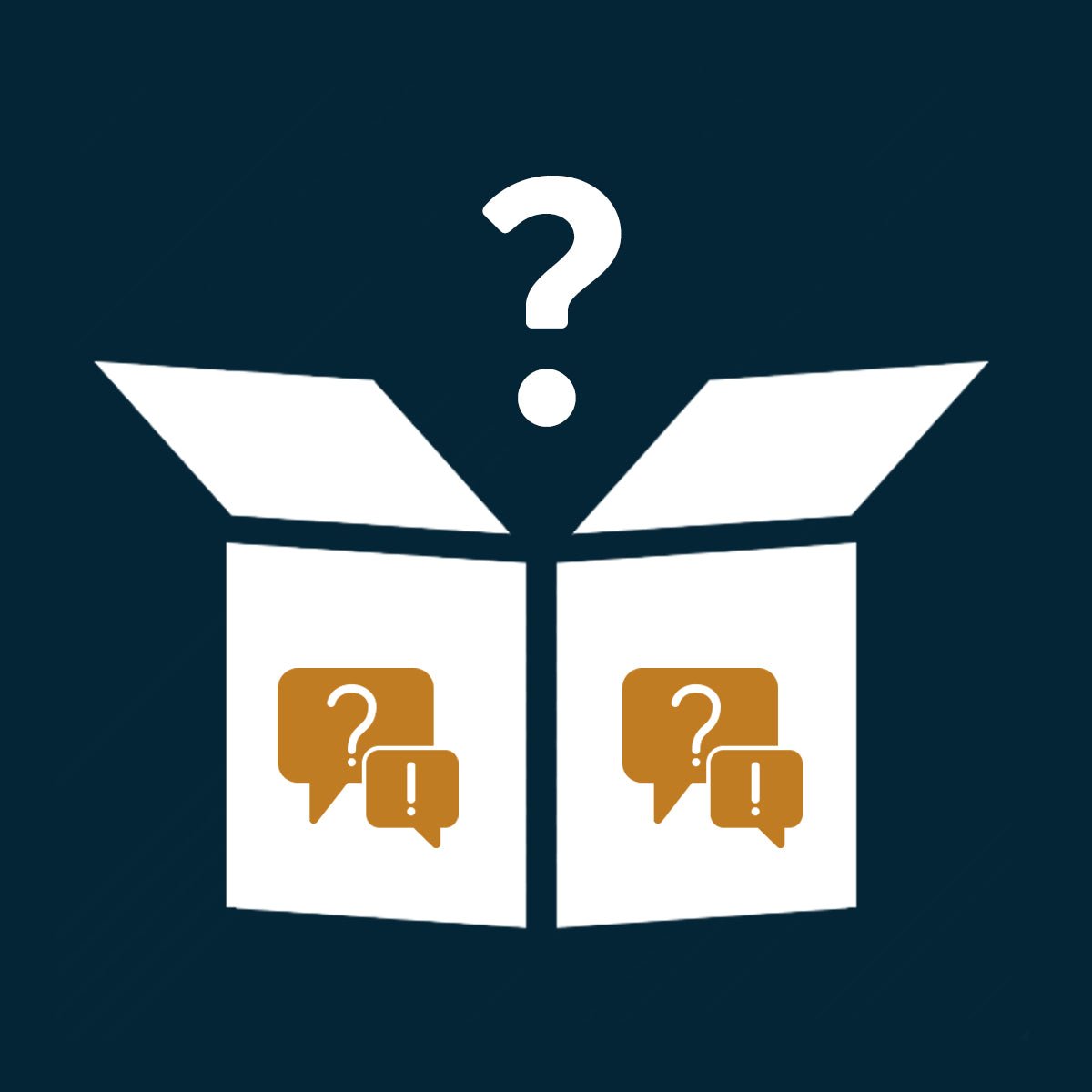 |
Get app |
| 2 | Advance FAQ | Zestard Technologies | $2.99/month | 5.0/5 ⭐️ | yes | 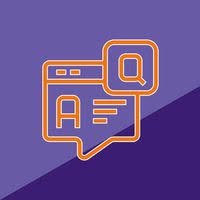 |
Get app |
| 3 | FaqKing: Help Center & FAQ | FaqKing | $4.99/month | 5.0/5 ⭐️ | yes |  |
Get app |
| 4 | HelpLab FAQ Page, Product FAQs | Avocados Lab | $3.99/month | 4.9/5 ⭐️ | yes |  |
Get app |
| 5 | FAQPRIME: FAQ, WhatsApp, Track | Oneprime, Inc. | 4.4/5 ⭐️ | no |  |
Get app |
Top Shopify FAQ apps reviewed
Table of contents:
How to Find The Best FAQ Shopify App?
These five FAQ apps for Shopify are ranked based on the following criteria:
- Features
- Price
- Rating on the Shopify app store
- Free trial availability
- Free app options
- Compatibility with other top apps
- Number of apps the app provider operates
- Pros and cons
- Built for Shopify badge
- Reviews and assessment by AcquireConvert
What are Shopify FAQ apps?
Shopify FAQ apps are tools that help online stores create and manage Frequently Asked Questions (FAQs) pages. These apps enable store owners to provide quick answers to common customer inquiries, enhancing the shopping experience and reducing the need for direct customer support.
One of the main features of Shopify FAQ apps is the ability to create customizable FAQ pages. These pages can be tailored to match the store’s branding, including adjustments to fonts, colors, and styles. This customization helps ensure a seamless integration with the store’s overall design.
Another key feature is the support for multiple languages. Many FAQ apps allow translations, making it easier to cater to a global audience. This feature ensures that customers from different regions can easily find answers in their native languages.
Shopify FAQ apps also offer search functionality, enabling customers to quickly find relevant answers. This feature improves the user experience by allowing customers to search for specific questions or keywords, saving time and effort.
Some FAQ apps come with SEO optimization features, such as Google rich snippets. These features help improve the visibility of the FAQ pages on search engines, driving more traffic to the store and enhancing its online presence.
Integration capabilities are another important aspect. Many FAQ apps seamlessly integrate with other Shopify apps and themes, ensuring compatibility and ease of use. This integration helps store owners manage their FAQ content efficiently without any technical difficulties.
Customer support is a crucial component of these apps. Most FAQ apps provide responsive and helpful customer support to assist store owners with any issues or customization needs. This support ensures that the FAQ pages function smoothly and effectively.
Overall, Shopify FAQ apps are essential tools for improving customer satisfaction, reducing support queries, and enhancing the overall user experience on e-commerce stores. For more detailed information and options, exploring various apps available on the Shopify App Store is recommended.
What is the best way to send a FAQ notification to customers?
The best way to send a FAQ notification to customers involves clear communication, effective timing, and using reliable tools. First, use automated notification systems provided by FAQ management apps like HelpLab FAQ Page or other Shopify apps. These tools can automate the process of notifying customers about new or updated FAQs, ensuring timely and consistent communication.
Personalizing the notifications is crucial. Address customers by their names and include specific details about the FAQs that might interest them. Personalized messages make the communication feel more relevant and engaging to the customer. Additionally, using multiple communication channels can enhance the effectiveness of your notifications. Sending notifications through email, SMS, and push notifications can ensure that customers receive the information in their preferred format.
Timing is also important. Send an initial notification as soon as the FAQs are updated, followed by reminders or highlights of significant updates. Finally, ensure that your notifications are clear and concise, providing all necessary information without overwhelming the customer.
By combining automated tools, personalized messaging, multiple channels, and timely communication, you can effectively manage FAQ notifications and enhance the customer experience.
Do FAQ convert to sales?
Yes, FAQs can effectively convert to sales. When customers find answers to their questions in the FAQ section, they gain the confidence needed to proceed with their purchase. This confidence is particularly important in online shopping, where customers cannot physically interact with the product.
FAQs build trust and credibility. By addressing common concerns about products, shipping, returns, and policies, a store demonstrates transparency and reliability. This builds trust with potential customers, making them more likely to complete a purchase.
FAQs reduce purchase hesitation. Many customers have specific questions before buying a product. Providing clear and detailed answers in the FAQ section helps alleviate these concerns, reducing the chances of cart abandonment and increasing the likelihood of conversion.
FAQs enhance the customer experience. A well-organized FAQ section allows customers to find information quickly and easily. This convenience improves their overall shopping experience, leading to higher satisfaction and a greater likelihood of purchase.
FAQs improve SEO. Including relevant keywords and phrases in the FAQ section can boost a store’s search engine rankings. Higher visibility in search results drives more traffic to the store, which can lead to increased sales.
FAQs demonstrate customer service commitment. A comprehensive FAQ section shows that the store values customer service and proactively addresses customer needs. This positive perception encourages customers to trust the brand and make a purchase.
Overall, FAQs are a strategic tool for converting visitors into customers. They provide essential information, build trust, reduce hesitation, enhance the shopping experience, and improve SEO, all of which contribute to higher sales conversion rates.
Conclusion: Best Shopify FAQ Apps
It requires time and effort to compare and evaluate features of the various different FAQ Shopify apps to find the ideal option.
Shopify store owners must evaluate relevant information to make the optimal choice for their needs.
This guide does the challenging work for merchants by comparing and evaluating the top choices for different FAQ Shopify apps. The results of our analysis of the best FAQ Shopify apps are listed below:

